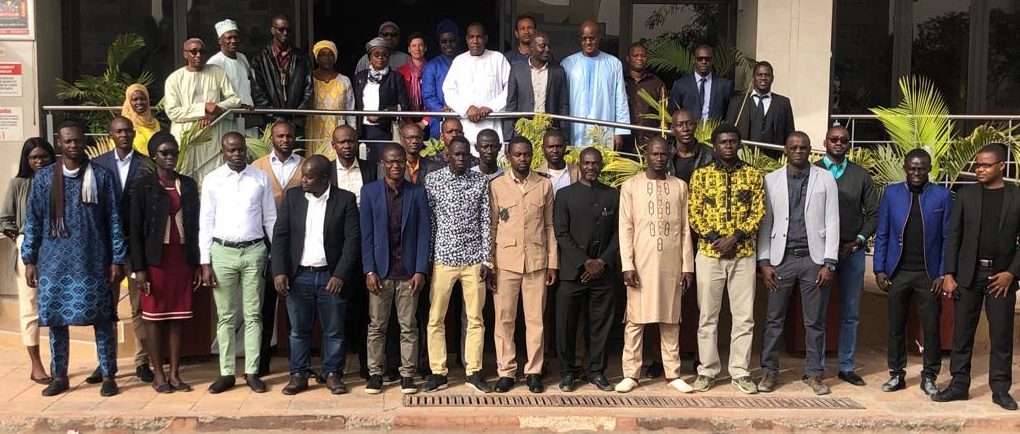
Co-Creating on Value of Drones for Social Good in Senegal
February 18th, 2019


At WeRobotics, we love drones as long as they can bring real value to Social Good initiatives. In all of our presentations and talks, we make it very clear that "it's not about the robots," and that actually only the smallest part of ours and all of the Flying Labs' work implicates drones, making up for no more than 10%. Most activities focus on either data and analysis as well as community/stakeholder engagement, and ecosystem building. It's never about the technology but about the way it is applied and the value that can be created through it at a local level.
 As Western Africa's most important platform for the Social Good sector and with a vibrant economy, Senegal represents a central location to consider for the setup of a regional Flying Labs in Western Africa, as our number of Affiliate Flying Labs through the region is growing at a fast pace. Hence, we wanted to better understand if and how drones could add value to ongoing development work in Senegal and through the country's support, in the whole region. Following our recent experience in Panama and Benin, we organized a Co-Creation workshop for "Drones in Social Good in Senegal."
As Western Africa's most important platform for the Social Good sector and with a vibrant economy, Senegal represents a central location to consider for the setup of a regional Flying Labs in Western Africa, as our number of Affiliate Flying Labs through the region is growing at a fast pace. Hence, we wanted to better understand if and how drones could add value to ongoing development work in Senegal and through the country's support, in the whole region. Following our recent experience in Panama and Benin, we organized a Co-Creation workshop for "Drones in Social Good in Senegal."
To successfully co-create, one needs first and foremost strong local partners to set up and coordinate such events, and a large number of country experts on the various sectors to tackle Humanitarian Aid, Health, Urban Development, Agriculture, Conservation and Climate Change. Thanks to the Hewlett Foundation -- the donor for our work in Africa -- and our good friends at Benin Flying Labs, we were introduced to two perfect key partners:
- KRANTH, a social organisation that has been promoting the use of civilian drones for social good for 3 years amidst a restricted regulatory framework, motivated by their strong belief in the value of drone data for the development in Senegal.
- IPAR, a leading think-tank for agricultural and rural policies in Senegal and the West African region.
Both organizations deeply share our strong belief in collaboration and open sharing, making this synergy a great fit from the very beginning. The research organization ISRA as well as the strong support of UCAD (Université Cheikh Anta Diop of Dakar) helped to round up the list of partners, and all partners leveraged their networks to promote the event. Over 250 interested stakeholders signed up for participation and a diverse selection of 60 attendees was made by local partners in order to keep the event small and manageable.
 We were honored on Wednesday, February 6, 2019 by the presence of Ms. Yaye Kéne Gassama, Vice-President of ANSTS, who presided the opening of our 2-day workshop. Mrs. Gassama shared her strong support for emerging technologies such as drones and AI with all of the attendees. To set the scene for the co-creation working groups to follow, the introductory presentations from IPAR, KRANTH, WeRobotics as well as Senegal's "Bureau Opérationnel de Suivi" offered an overview on the current use of drones and data for social good around the world, and first use cases in Senegal.
We were honored on Wednesday, February 6, 2019 by the presence of Ms. Yaye Kéne Gassama, Vice-President of ANSTS, who presided the opening of our 2-day workshop. Mrs. Gassama shared her strong support for emerging technologies such as drones and AI with all of the attendees. To set the scene for the co-creation working groups to follow, the introductory presentations from IPAR, KRANTH, WeRobotics as well as Senegal's "Bureau Opérationnel de Suivi" offered an overview on the current use of drones and data for social good around the world, and first use cases in Senegal.
The real work began in the afternoon when participants split up in 3 sector-oriented groups to identify use cases for their sectors, discuss the value that drones and drone-derived data could add to their work, list stakeholders for each case, and define possible challenges. In less than 3 hours, the participants identified over 50 ideas across sectors such as Humanitarian Aid, Health, Urban Development, Agriculture, Conservation and Climate Change. Coming back to these groups the next morning, the participants added more ideas and then took the time to qualify and prioritize them, creating a total of 43 qualified use cases throughout all sectors, including a list of challenges to address in order to successfully deploy drones in the Social Good sector in Senegal.
Watch the video of the workshop.
Additional meetings and discussions throughout the week have made it clear that Senegal and its bustling development community can represent an ideal location for a future regional Flying Labs. And as a first step, our local partners KRANTH in partnership with IPAR and UCAD decided to open Senegal Flying Labs as an Affiliate Flying Labs. We will continue the discussions started during the 2-day workshop by giving a chance to the over 200 interested stakeholders whom we couldn't include in this first workshop. These follow-up events will be communicated shortly.
We would like to sincerely thank IPAR, KRANTH, ISRA and UCAD as well as all of the workshop's attendees for their investment. We are very grateful for the spirit of open sharing that has allowed us to co-create together a very broad and detailed overview of how drones can add value for development in Senegal.
Location(s):
Recent Articles

